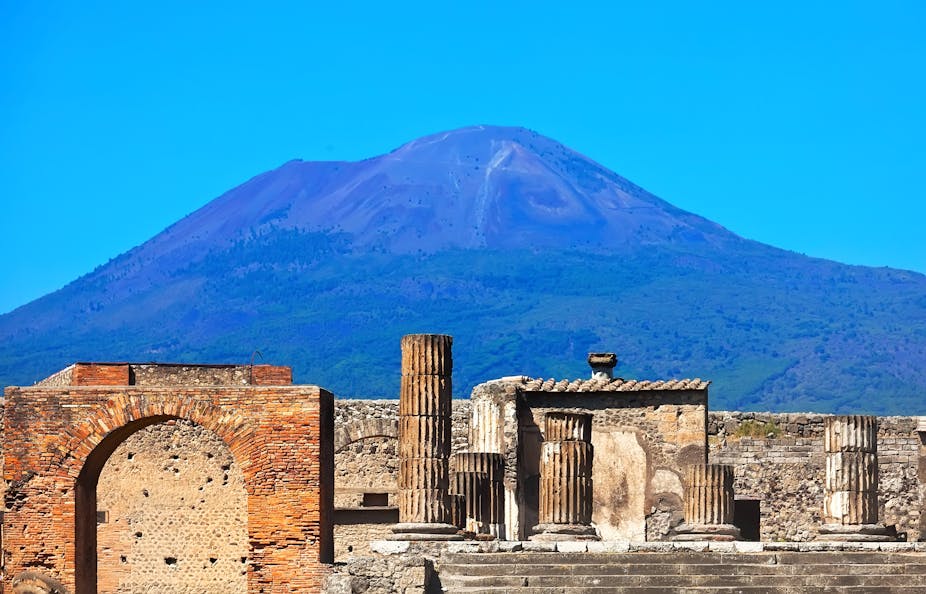It seems that every time a new film based on historical events is released, there’s a rush to discuss accuracy, realism and what value the film might have for learning anything about the past. This is as true for films about antiquity as it is for films set 50 or 100 years ago. But perhaps these are not the right questions to ask. In such cases, does accuracy matter quite so much?
The purpose of a film is to tell a story – whether entirely fictional or not – not to be an educational tool. That’s why documentaries exist. The makers of Pompeii, the newest film set in the ancient world, may claim attention to detail and historical accuracy, but real accuracy seems an impossibility, and is really an unfair burden to place on what is, in essence, an heroic action film.
There’s plenty of fierce discussion on Twitter and in comment sections about these inaccuracies. There’s the manner in which the eruption takes place (there was no fire raining down on escaping Pompeians) and the location of the amphitheatre (it should be in the southeast corner of the city, not in the north).
But these are details which are of course solely driven by artistic license, and license that for this type of film is wholly predictable. Fire is much more dramatic than a lot of pumice and ash, and the foreboding view of Vesuvius looming over the arena must add an element of expectant dread for the viewer.
And isn’t that the point? The elements of antiquity that are altered are done so in order to better tell the story, to enhance the experience of the moviegoer. If the average person in the cinema learns a little something in the process, then that’s just the cherry on the cake. If it spurns someone on to read more, or take a trip to Italy to see it for themselves, even better. Or, if it is just a fun two hours watching some sword fighting and volcanic drama (with undoubtedly a bit of romance thrown in), well that’s good too. History won’t suffer because the film isn’t quite right on every detail.
This is not to say that particularly egregious historical inaccuracies don’t set my teeth on edge – they often do. But films like this aren’t made for scholars who have been working in Pompeii (or Rome, or Greece) for more than a decade – they are for the general public. For the average person sitting in the cinema (expert or not), what it comes down to really is how compelling the story is. The flaws in accuracy can be overlooked if the story and the characters capture the viewer’s attention. This was the case with Gladiator, the HBO/BBC series Rome, but not so much with some other recent sword and sandal films – I’m looking at you, Alexander and Troy. Until I get a chance to see it for myself, whether or not Pompeii tells a good story is something I cannot judge.
Regardless of what might be historically wrong with the film, I have no doubt that many will see it and enjoy it. Pompeii has always been a huge attraction – the ruins wouldn’t get 2.5 million visitors per year otherwise. And Pompeii has a particular hold on us. This is not, of course, entirely about viewing antiquity – it is the drama, the tragedy.
Whether walking around the city, reading, learning, or watching films about it, the fascinating pull of Pompeii is the thought of a whole community of average people, living their lives, until one day everything stopped. It is the suddenness of that end that engenders a kind of empathy and fascination. As macabre as that may sound, it is an element of Pompeii that can be found from the earliest visitors, when writers such as Goethe, Mary Shelley, and Mark Twain wrote about the spectre-like aspect of the city and its unfortunate inhabitants, frozen in time at their horrific end.
There is something immensely compelling about the tragedy that befell the people living in this city that draws people to its story. This is equally true for those of us in academia who work there as it is for the general public.
These filmmakers have just found another way to tell that story, and in doing so, it will reach far more people than any scholar ever could. For that reason, how accurately they have done it isn’t really that important, and assuming that those going to see the film hadn’t anticipated a bit of artistic license is entirely unrealistic.

